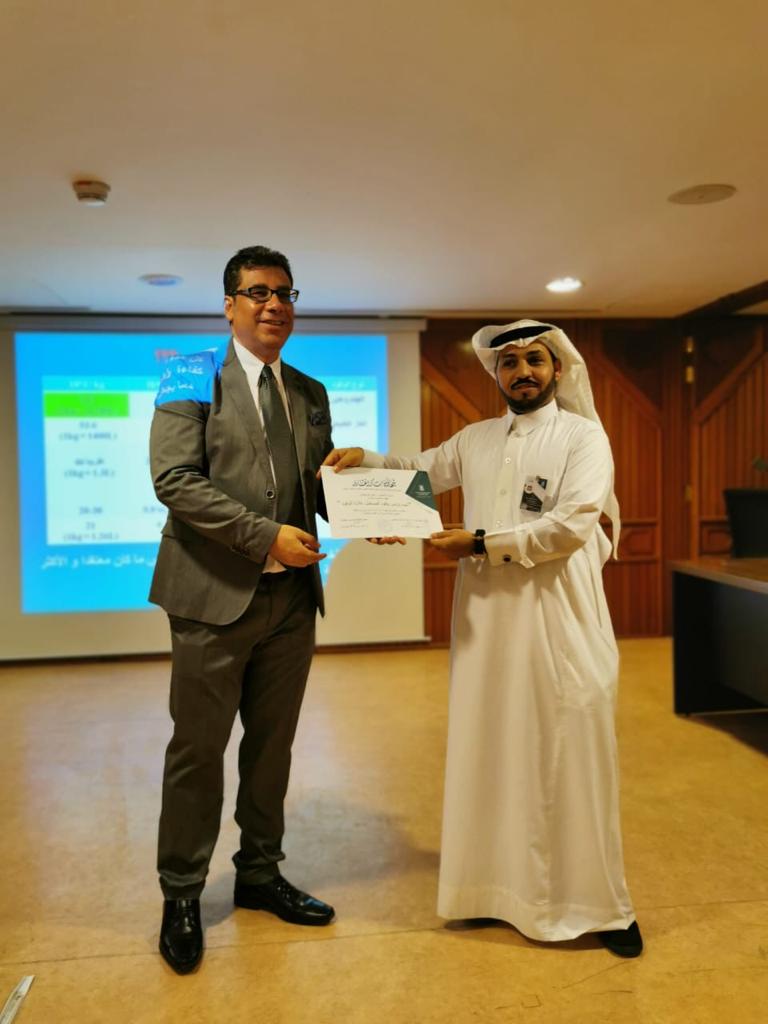
In continuation of Al-Qunfudhah College's scientific activities, and under the framework of the fruitful cooperation between the Department of Chemistry and the Vice Deanship of Postgraduate Studies and Scientific Research in the college, the 4th scientific seminar for the year 1441 A.H. has been held. The seminar, entitled "Hydrogen is Future Fuel: Fuel Cells"و was delivered by Dr. Ali Al-Wajdani in the college theater.
Fossil fuel provides us with 85.5 % of the global demand for energy. Given the increasing demand for this type of fuel and that it is the only reliable source of energy, the world will inevitably run out of it. Added to this are the strategic and environmental considerations that make it necessary for us to search for alternative sources that solve the problems of pollution, global warming, and the global economic crisis pertinent to energy and crude oil.
After carrying out several experiments and making the due comparisons between them, scientists decided that hydrogen is the most convenient fuel alternative for the following objective reasons:
Thanks to its properties (and contrary to previous assumptions), hydrogen is the safest source of fuel. It also has a higher watt-hour/mass efficiency than any other type of fossil fuel. So, hydrogen is undoubtedly the fuel of the future.
During the seminar, different methods of hydrogen gas preparation were explained:
Given the challenges that force scientists to search for new fuel for the future, fuel cells have appeared again as complete and general alternatives to fossil fuel.
A fuel cell is a device for transmitting chemical energy stored in hydrogen and its compounds, especially the hydrocarbonic ones (such as natural gas or methanol) directly into electric energy by using oxygen or air.
The seminar shed light on the preparation of the fuel cell of hydrogen, its main components, main types, and its different areas of use.
Main Advantages of Fuel Cells:
At the end of the seminar, the discussion was opened to the students, teachers, and attendees. In the presence of the Vice Dean of Postgraduate Studies and Scientific Research, Dr. Yahia bin Muzhir Al-Zahrani, certificates of appreciation were given to Dr. Ali Al-Wajdani.
Public Relations and Media Unit at Al-Qunfudhah University College